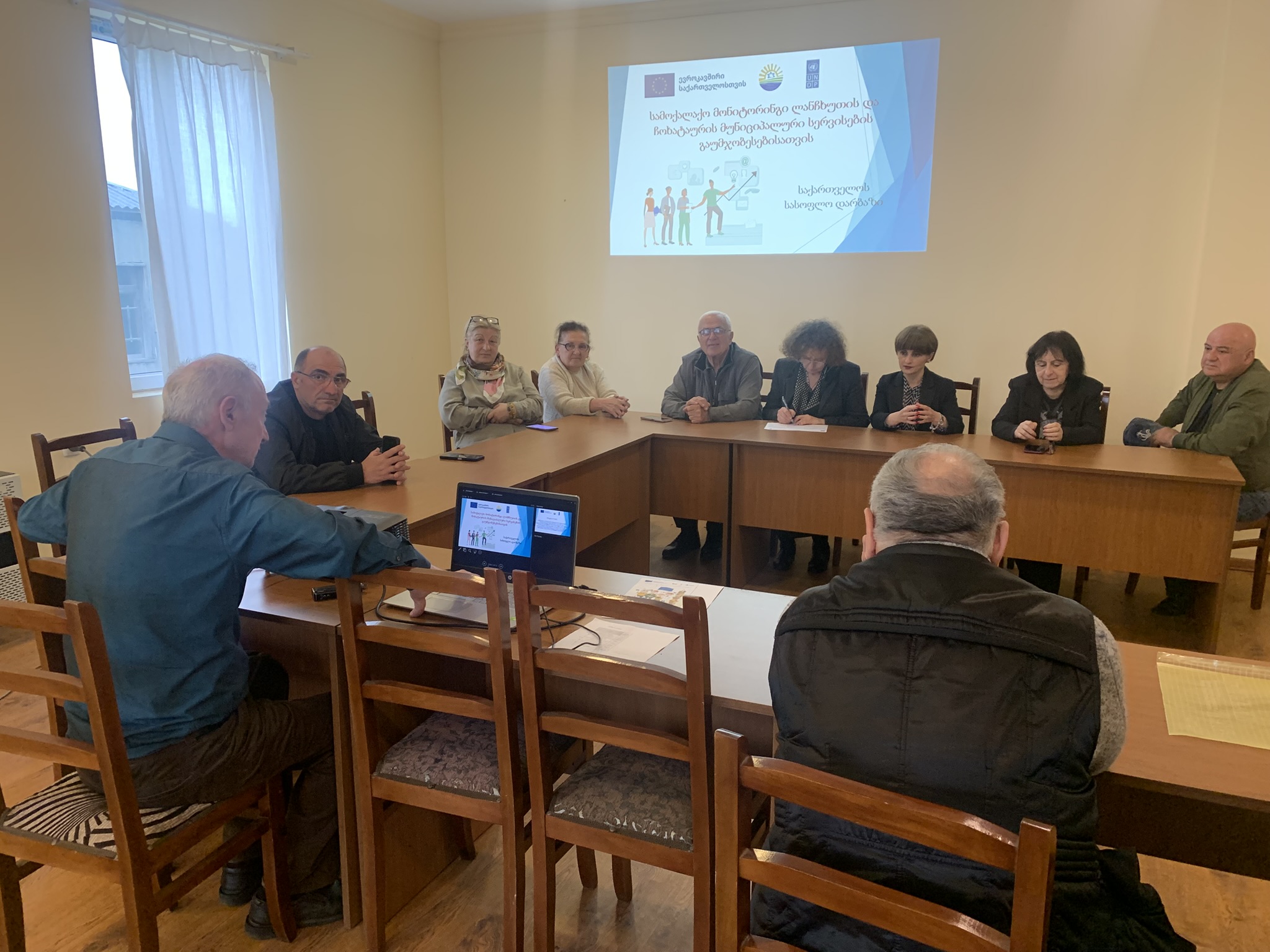Home
Civil Monitoring for the Improvement of Municipal Services in Lanchkhuti and Chokhatauri

Project Objectives:
l Selection of three N(N)LEs in each municipality, a total of six N(N)LEs, for monitoring
l Implementation of monitoring by civil society organizations
l Development of conclusions and recommendations for the further improvement of the selected N(N)LEs
l Selection and implementation of citizen initiatives with a budget of up to 11,000 GEL in Lanchkhuti and 11,000 GEL in Chokhatauri
As part of the project, a working-discussion meeting was held in Lanchkhuti with the participation of local civil society organizations. During the meeting, participants were introduced to the goals and objectives of the project. The following N(N)LEs were selected for civil monitoring in Lanchkhuti Municipality:
l Lanchkhuti Municipality Beautification and Maintenance Center
l Lanchkhuti Municipality Sports Center
l Lanchkhuti Municipality Association of Art and Music Schools
The project is supported by the European Union (EU) and the United Nations Development Programme (UNDP).
Civic Monitoring for the Improvement of Municipal Services in Lanchkhuti and Chokhatauri

Georgian Rural Council, has launched the project "Civic Monitoring for the Improvement of Municipal Services in Lanchkhuti and Chokhatauri" with the support of UNDP. The goal of the project is to improve the quality of municipal services in Lanchkhuti and Chokhatauri through the promotion of greater transparency in municipal public legal entities (PEs), which will be achieved through joint civic monitoring by local NGOs and media, and by strengthening community initiatives to address local challenges.
The objectives of the project are:
• Selection of three PEs from each municipality, for a total of 6 PEs, for monitoring
• Conducting monitoring by civic organizations
• Development of conclusions and recommendations regarding the further development of the PEs
• Selection and implementation of citizens' ideas within the budget of 11,000 GEL in Lanchkhuti and 11,000 GEL in Chokhatauri.
"Inspection of margarines in Lanchkhuti"
As part of an initiative by the Georgian Center for Strategic Research and Development, the Georgian Rural Hall purchased samples of margarine (hardened vegetable fats) and sent them to a laboratory for testing. The samples were checked for heavy metals, aflatoxin B1, pesticides, radionuclides, and microbiological indicators.
According to various regulations in Georgia, margarines must meet specific safety standards. The research focused on the safety requirements defined by the Sanitary Rules and Norms for Food Raw Materials and Food Products. It’s worth mentioning that not all possible contaminants in margarine were tested.
Margarine is a widely consumed product in Georgia. It’s used both by the general public and by bakeries and restaurants. That’s why ensuring its safety is important for public health.
However, the National Food Agency hasn’t paid much attention to testing margarines for these particular indicators. In 2023–2024, no such checks were carried out.
The good news is that none of the tested samples showed any violations.
Honey Safety Control in Georgia
 Tbilisi, March 4, 2025 – Within the framework of the project "Enhanced Agricultural Practices and Consumer Awareness" (CAPCA), the Center for Strategic Research and Development of Georgia (CSRDG) held a presentation on the results of a monitoring study titled "Honey Safety Control in Georgia."
Tbilisi, March 4, 2025 – Within the framework of the project "Enhanced Agricultural Practices and Consumer Awareness" (CAPCA), the Center for Strategic Research and Development of Georgia (CSRDG) held a presentation on the results of a monitoring study titled "Honey Safety Control in Georgia."
CSRDG conducted monitoring on honey-related safety risks and state control measures. The research covered existing mechanisms for honey safety control, key challenges, and difficulties. The monitoring focused on state control over honey safety in the domestic market.
The monitoring report addressed issues such as:
● Beekeepers’ awareness of food safety and self-monitoring mechanisms;
● The number of veterinarians;
● Mechanisms for registering entrepreneurs;
● The scope of state control;
● Antibiotic residues in honey;
● Control effectiveness and consumer awareness.
During the monitoring process, existing official documentation and reports were analyzed, and in-depth interviews were conducted with four employees of the National Food Agency.
More Articles...
We have 35 guests and no members online






































